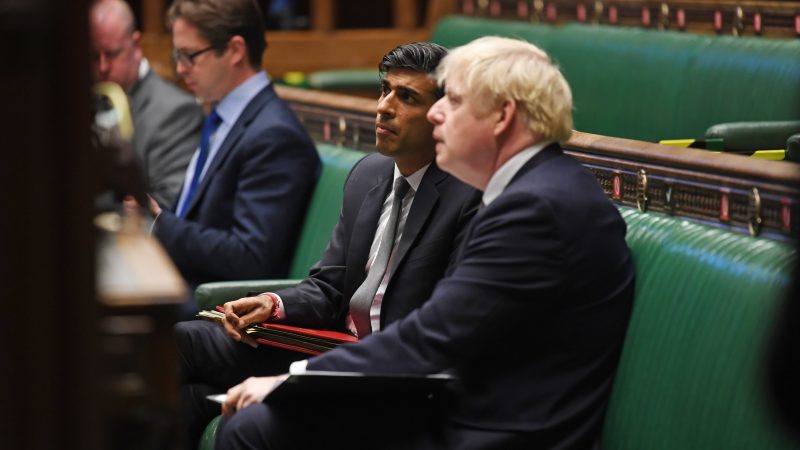
69% of the British public, including 54% of 2019 Tory voters, say Boris Johnson is responsible for the behaviour of the protesters who harassed Keir Starmer on Monday. A similar figure, 68%, say the Prime Minister should publicly apologise for his Jimmy Savile comment. This Savanta ComRes polling was the context in which Johnson undertook a mini-reshuffle yesterday. He is “desperately trying to save his own skin”, Angela Rayner said. Jacob Rees-Mogg was moved to a newly created, cabinet-level “Brexit opportunities” role, while the much-criticised chief whip Mark Spencer was swapped out for one of the MPs in the ‘shadow’ whipping operation to save Johnson. And yet, despite the Owen Paterson chaos, Nus Ghani’s Islamophobia claims and the allegations of blackmail, Spencer was not shuffled out but given Rees-Mogg’s former roles.
Remember Starmer’s May 2021 reshuffle, which started in the middle of local election results still coming in and with lots of anger around the Rayner sacking? Yesterday’s ‘mini’ reorganisation was one of that kind. Just as the Labour leader had to follow up his first attempt with a wider reshuffle later in the year – a very successful one in which he made big changes and got everyone into the positions he wanted – the Prime Minister is expected to do a proper shake-up later. Then both parties will have their preferred top teams for the run-up to the next general election. It is less certain that Johnson’s standing in his party will improve in the same way that the opposition leader’s did last year, however. He faces many challenges, not least the alarming issue of our rising cost of living combined with a tight-fisted Chancellor.
Labour has spied an opportunity. The opposition party first got ahead on the energy crisis by announcing a policy on it back in October: removing VAT from household bills for six months. The government had nothing to offer, despite Johnson having backed the VAT idea during the Brexit campaign. Then Rachel Reeves and Ed Miliband delivered a new eye-catching policy: a windfall tax on oil and gas companies. Featured on the news constantly in recent weeks, this has really cut through, Labour advisers believe. They expected Labour’s political advantage to reduce once the government had finally unveiled its own policy, but that has not been the case. In fact, the windfall tax looks even better now that it can be contrasted with the mean and absurd policy announced by Rishi Sunak, which includes a ‘buy now, pay later’ aspect involving a compulsory loan that must be repaid even by those who do not receive the £200 so-called discount this year. See my full write-up of how the energy policy battle is playing out here. Sign up to LabourList’s morning email for everything Labour, every weekday morning.



More from LabourList
John Healey: ‘Here’s why Labour is the real party of defence’
‘After the locals, Labour must show on Gaza it truly understands voter anger’
Reeves: New Deal consultation will prevent ‘adverse consequences’